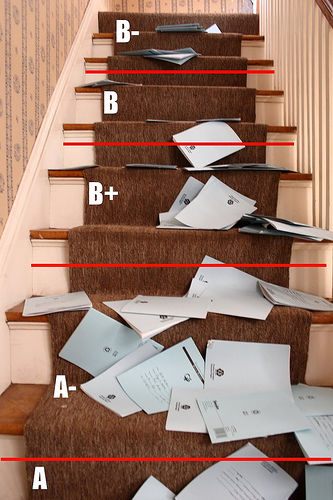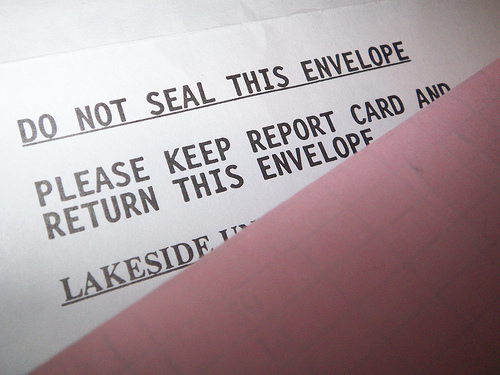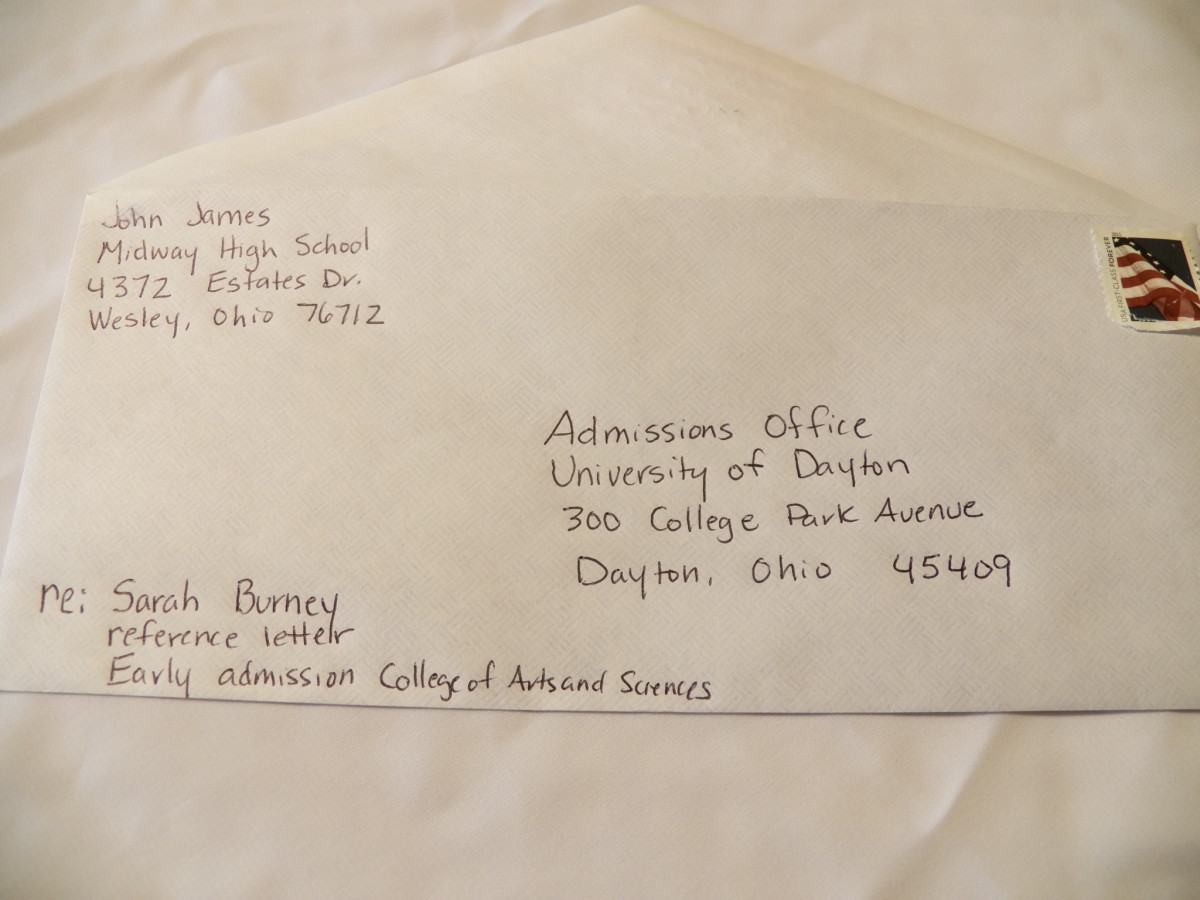Do Colleges Ever Revoke Acceptance Letters?
How Much Can You Slip?
You've worked hard in high school and it's paid off. Every college you've applied to has sent an acceptance letter.
Now, though, you're worried. You're taking some very challenging courses. You're also working to save money to help pay for your education. Sometimes you don't get home from your shift until late, so it's hard to get a full night's sleep. But you're doing your best to keep everything together.
This is the final stretch. You're just about there. However, one of your AP classes is starting to worry you. You've struggled with this all year, and it looks as if you might get a 3.0 in that course, if you're lucky. Is one bad grade enough for a college to rescind it's offer of admission?
It's Relatively Rare, But it Can Happen
Gone are the days when an acceptance letter meant a virtually guaranteed spot in the freshman class. Nowadays, admissions invitations are very conditional. If your senior grades fall low enough, it's not unheard of for an institution to take back its offer.
Some schools may, instead, decide to place an incoming freshman who's slipped a bit on academic probation. Others may let him attend, but withdraw an invitation to the honors program. Or a plum merit scholarship may evaporate into thin air. For students from families of moderate means, who depend upon this aid, that's almost the same as saying "don't come."
Although an admissions team will overlook an occasional "B" or even a "C," earning a "D" will get their attention. At the very least, they'll probably ask for an explanation.
Unless there are extenuating circumstances, serious slippage into "F" territory often means a student must make other arrangements.

What is "Senioritis?"
Admissions representatives are well aware of something called "senioritis." Most high school seniors suffer from it. With their minds looking toward the future, and college a higher priority than high school, they aren't as interested in the present. They're tired of the same old routine and they're ready to move on. Burnt out from AP classes and extracurricular activities, all designed to impress college officials, they are spent, physically and emotionally. At this point they just want to relax. Unfortunately, this is often reflected in their grades.
Since senioritis is so common, college admissions departments are somewhat forgiving if they see signs of this. It's a more drastic plunge in study habits that raise red flags.
Acceptances are Pulled Every Year
High school seniors are expected to submit transcripts to the college they apply to. This includes the final grades earned after admissions decisions are made. If you've had stellar grades until now, a disastrous last semester can mean you're no longer welcome in the freshman class.
Other reasons an acceptance is revoked include committing a serious infraction in high school, which results in a disciplinary action. A upper-grade suspension is taken more seriously. Freshman antics are often overlooked, especially if the record's been clean since then. But a senior caught cheating on an exam, for instance, will be treated harshly.
Being arrested for a felony, such as grand theft or aggravated assault, will also, in many instances, cause an abrupt change in college plans.
Cleaning up your Facebook page should have been done before applications were sent. However, if you haven't done so yet, now is the time.
Accepted student weekends are another potential pitfall. If you happen to misbehave, and you're caught, you may not have a future at that college.

How Often Does this Happen?
This is one statistic that isn't represented in the glossy recruitment brochures. So no one really knows.
But it's probably safe to say that a lot colleges have done this, at one time or another. One of the few points of reference we have are a couple of published interviews with college representatives, who confirm that acceptances are occasionally taken back.
The National Association for College Admission Counseling (NACAC) issued a 2009 report showing that, in the previous year, more than 20 percent of colleges across the country had taken back an acceptance offer. On average, this happened 10 times a year.
Most of the time, according to NACAC, this happened because of poor grades. Pulling an acceptance letter is also much more likely to happen at a public university than at a private school.
The Los Angeles Times reported a few years back that state universities are taking one "D" very seriously, even if the student has an otherwise flawless track record. One of the reasons cited was "fairness" to wait-listed candidates.
Unfortunately, such decisions are made over the summer. Students learn of the news after having turned down other options.
Why a "B" is Barely Respectable Nowadays
There was a time when college-bound students didn't fret about earning a "B." This once meant a student's performance was above average. However, in recent decades, grade inflation has become a fact of life in America. Many students now have a perfect grade point average, not just the top tier. So a 3.0 GPA is not considered all that good anymore.
It's usually not enough to get you into a flagship university. It's barely enough to gain acceptance into a fairly competitive state college.

What to Do if You're Worried
College admissions experts generally recommend taking a direct approach. If you know a bad grade is coming, it's better that you call the admissions office yourself, and let them know. They'll see your transcript soon enough anyway.Tell them about any extenuating circumstances, along with a vow to do better going forward.
This also shows maturity. It sends a message that you're willing to own up to a mistake and take steps to correct it. It also gives you a chance to explain what happened. If there are unusual circumstances, such as a family crisis or an illness, which forced you to miss a significant amount of school, this is the perfect time to explain. In this case, your guidance counselor can write a note describing the details.
Disclosure
I am a participant in the Amazon Services LLC Associates Program, an affiliate advertising program designed to provide a means for sites to earn advertising fees by advertising and linking to amazon.com.











